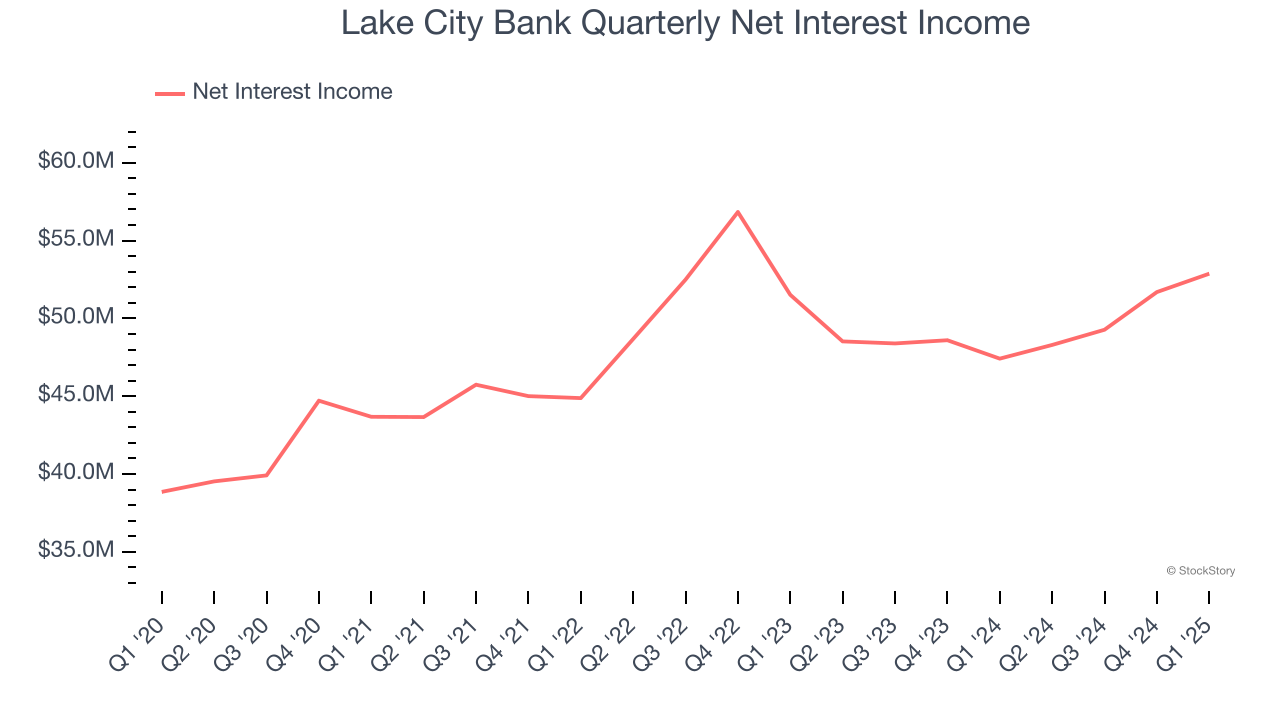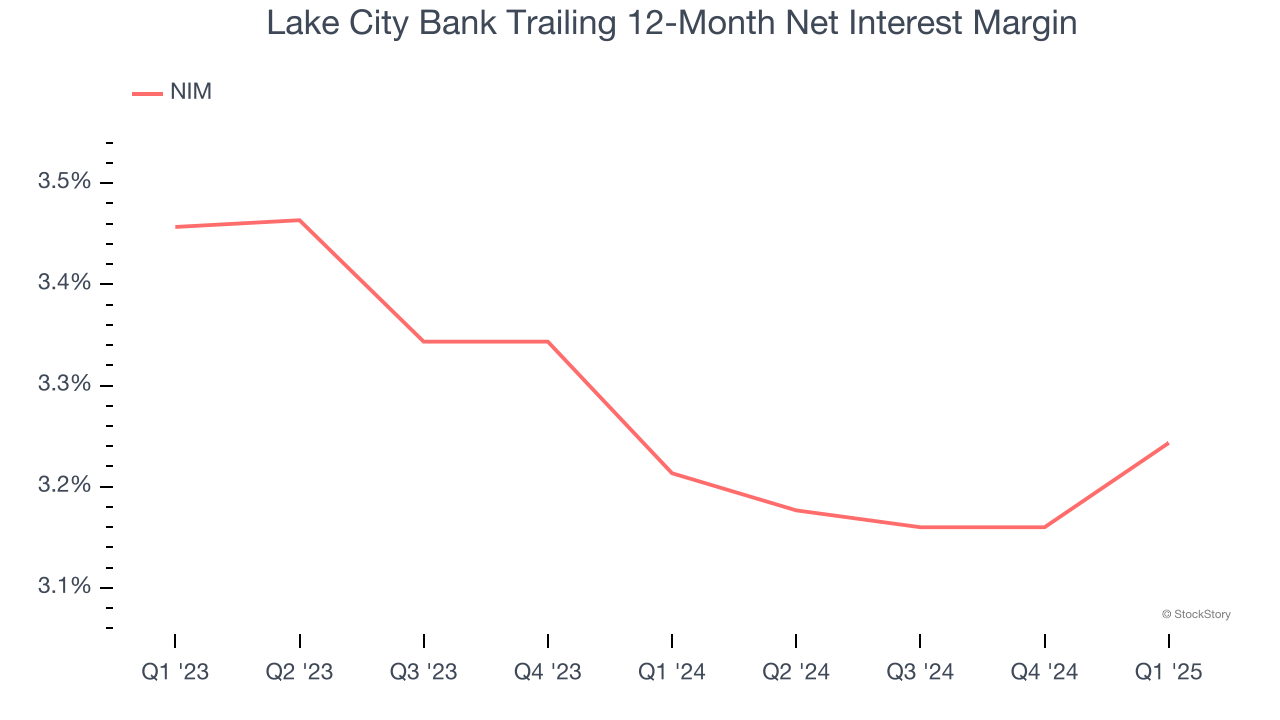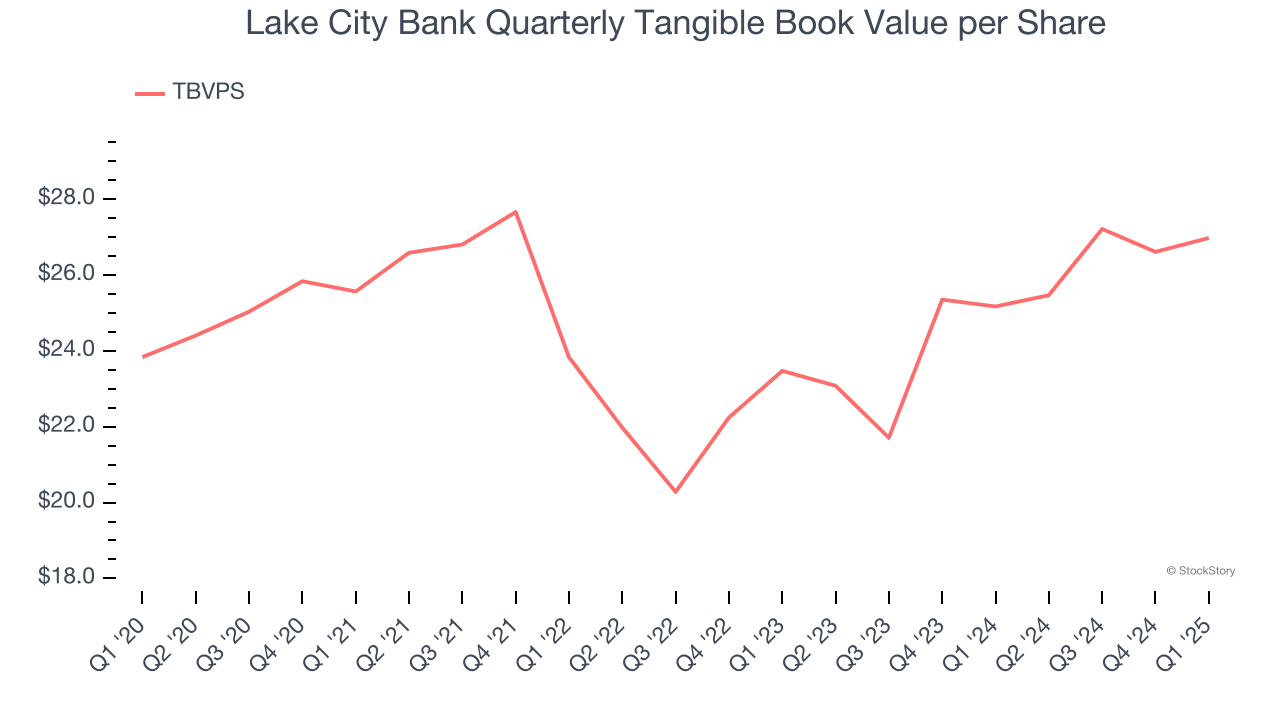
Over the past six months, Lake City Bank’s stock price fell to $60.31. Shareholders have lost 13.7% of their capital, disappointing when considering the S&P 500 was flat. This was partly driven by its softer quarterly results and may have investors wondering how to approach the situation.
Is there a buying opportunity in Lake City Bank, or does it present a risk to your portfolio? See what our analysts have to say in our full research report, it’s free.
Why Is Lake City Bank Not Exciting?
Even with the cheaper entry price, we're sitting this one out for now. Here are three reasons why we avoid LKFN and a stock we'd rather own.
1. Net Interest Income Points to Soft Demand
Markets consistently prioritize net interest income growth over fee-based revenue, recognizing its superior quality and recurring nature compared to the more unpredictable non-interest income streams.
Lake City Bank’s net interest income has grown at a 4.8% annualized rate over the last four years, worse than the broader bank industry. Its growth was driven by an increase in its net interest margin, which represents how much a bank earns in relation to its outstanding loans, as its loan book shrank throughout that period.

2. Net Interest Margin Dropping
Revenue is a fine reference point for banks, but net interest income and margin are better indicators of business quality for banks because they’re balance sheet-driven businesses that leverage their assets to generate profits.
Over the past two years, Lake City Bank’s net interest margin averaged 3.2%. Its margin also contracted by 21.3 basis points (100 basis points = 1 percentage point) over that period.
This decline was a headwind for its net interest income. While prevailing rates are a major determinant of net interest margin changes over time, the decline could mean Lake City Bank either faced competition for loans and deposits or experienced a negative mix shift in its balance sheet composition.

3. Substandard TBVPS Growth Indicates Limited Asset Expansion
In the banking industry, tangible book value per share (TBVPS) provides the clearest picture of shareholder value, as it focuses on concrete assets while excluding intangible items that may not hold value during challenging times.
Disappointingly for investors, Lake City Bank’s TBVPS grew at a tepid 7.2% annual clip over the last two years.

Final Judgment
Lake City Bank’s business quality ultimately falls short of our standards. After the recent drawdown, the stock trades at 2× forward P/B (or $60.31 per share). At this valuation, there’s a lot of good news priced in - we think other companies feature superior fundamentals at the moment. Let us point you toward an all-weather company that owns household favorite Taco Bell.
Stocks We Like More Than Lake City Bank
Donald Trump’s victory in the 2024 U.S. Presidential Election sent major indices to all-time highs, but stocks have retraced as investors debate the health of the economy and the potential impact of tariffs.
While this leaves much uncertainty around 2025, a few companies are poised for long-term gains regardless of the political or macroeconomic climate, like our Top 5 Strong Momentum Stocks for this week. This is a curated list of our High Quality stocks that have generated a market-beating return of 183% over the last five years (as of March 31st 2025).
Stocks that made our list in 2020 include now familiar names such as Nvidia (+1,545% between March 2020 and March 2025) as well as under-the-radar businesses like the once-small-cap company Exlservice (+354% five-year return). Find your next big winner with StockStory today.





